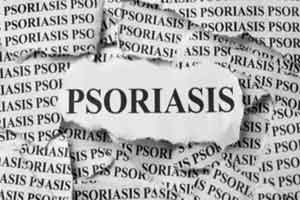- Home
- Editorial
- News
- Practice Guidelines
- Anesthesiology Guidelines
- Cancer Guidelines
- Cardiac Sciences Guidelines
- Critical Care Guidelines
- Dentistry Guidelines
- Dermatology Guidelines
- Diabetes and Endo Guidelines
- Diagnostics Guidelines
- ENT Guidelines
- Featured Practice Guidelines
- Gastroenterology Guidelines
- Geriatrics Guidelines
- Medicine Guidelines
- Nephrology Guidelines
- Neurosciences Guidelines
- Obs and Gynae Guidelines
- Ophthalmology Guidelines
- Orthopaedics Guidelines
- Paediatrics Guidelines
- Psychiatry Guidelines
- Pulmonology Guidelines
- Radiology Guidelines
- Surgery Guidelines
- Urology Guidelines
Dietary recommendations for reducing severity of Psoriasis , Psoriatic Arthritis : JAMA

Dietary intervention can reduce the severity of disease in people with psoriasis and/or psoriatic arthritis, according to a study published in the journal JAMA Dermatology.
Questions were raised regarding dietary interventions which may help adult patients with psoriasis and/or psoriatic arthritis reduce their disease severity. Adam R. Ford and associates conducted a study to make evidence-based dietary recommendations for adults with psoriasis and/or psoriatic arthritis.
The systematic review from the MEDLINE database included 55 studies and 4534 patients with psoriasis that evaluated the impact of diet on psoriasis. The authors made evidence-based dietary recommendations, which were voted on by the National Psoriasis Foundation Medical Board.
Recommendations based on the study:
- The strongest evidence for dietary weight reduction was identified with a hypocaloric diet in overweight and obese patients with psoriasis.
- A gluten-free diet is not helpful for all psoriasis patients, but it can be helpful in reducing psoriasis in patients whose blood tests are positive for gluten sensitivity.
- Vitamin D supplementation and dietary weight reduction with a hypocaloric diet in overweight and obese patients are weakly recommended.
- Dietary interventions should always be used in conjunction with standard medical therapies for psoriasis and psoriatic arthritis.
- There is little evidence to support many diets and nutritional supplements that have been thought to be useful in reducing psoriasis.
The study concluded that adults with psoriasis and/or psoriatic arthritis can supplement their standard medical therapies with dietary interventions to reduce disease severity. These dietary recommendations from the National Psoriasis Foundation Medical Board will help guide clinicians regarding the utility of dietary interventions in adults with psoriatic diseases.
Psoriatic arthritis is a type of arthritis that affects some people who have psoriasis, a condition that features red patches of skin topped with silvery scales. Most people develop psoriasis first and are later diagnosed with psoriatic arthritis, but the joint problems can sometimes begin before skin lesions appear.
For more information log on to
https://jamanetwork.com/journals/jamadermatology/article-abstract/2684587
.

Disclaimer: This site is primarily intended for healthcare professionals. Any content/information on this website does not replace the advice of medical and/or health professionals and should not be construed as medical/diagnostic advice/endorsement or prescription. Use of this site is subject to our terms of use, privacy policy, advertisement policy. © 2020 Minerva Medical Treatment Pvt Ltd